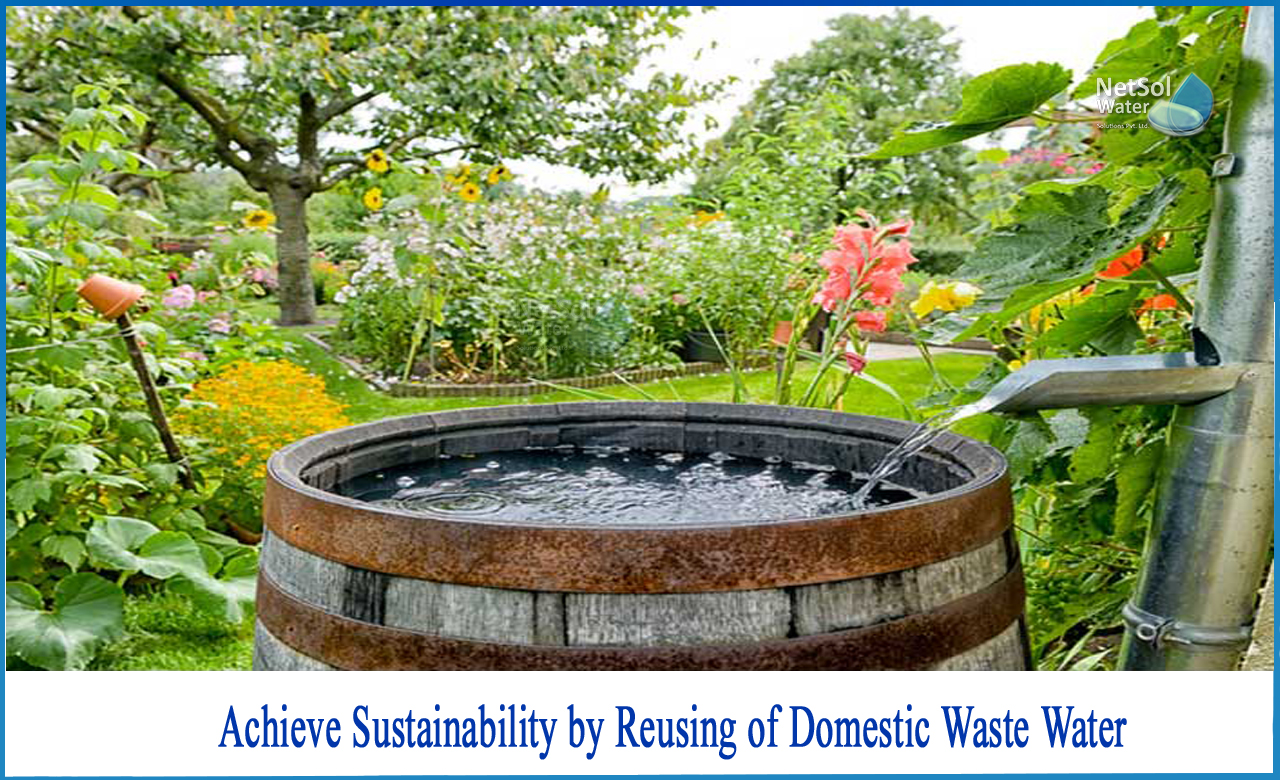How can we reuse domestic wastewater?
If wastewater is recycled in an industrial process, it is usually piped into a storage tank where it can be used according to the facility's needs.
In today's world, effective treatment and reuse of residential waters has become critical. Despite the fact that such procedures have improved significantly in terms of technology, they still require knowledge or a thorough understanding of the technology in order to be properly executed. In addition, particular measures for process optimization must be used.
Environmentally friendly home water reuse treatments are now required. In this perspective, it is evident that systems that recycle wastewater in a natural or organic manner are preferred. Reed beds are a great illustration of this. In several well-known places of the world, the use of such beds has increased dramatically.
No matter how advanced one’s technology is, problems like leakage can wreak havoc. The most common cause of leaks is the use of low-quality pipes. Water conservation necessitates the elimination of leaks. For more conservation, top water treatment firms like Netsol Water can use methods like CIP. High-end nozzles are used in these systems. Rather than a one-time loading and draining, the procedure is broken down into many parts.
Condensate recovery that works
Domestic water reuse can always be made more productive with effective condensate recovery. High-end systems are now employed, with condensates that can be reused for boiler feeding. Water consumption has been greatly reduced as a result of these technologies. At the same time, they are extremely energy-efficient, and hence can be cost-effective.
Impurity-specific strategy
In today's world, water reuse or treatment is considerably more strategic. Only after determining the impurity kind, a reputable service provider like Netsol try the appropriate ways. Knowing the different types of impurities can also aid with research. It is simple to turn impurities into helpful nutrients once one knows what type of impurity they are. Chloramines, for example, can be converted to chlorines. It would effectively inhibit the production of THM as a result of the process.
Biological treatments are, without a doubt, the greatest solutions for residential water reuse. Organic microorganisms are utilized in these procedures to break down organic wastes and convert them to valuable chemicals. These organic bacteria eat these wastes as a source of nutrition. Through a detailed examination of the water or the waste type in it, such processes can be carried out considerably more successfully. In reality, granular media is employed in several operations to keep bacteria stable so that they can be utilized in a continuous stream of water. All of these procedures, however, should be carried out under the close supervision of an experienced specialist.
Other ways to Reuse Wastewater
- Agricultural Wastewater Reuse
Wastewater can be utilized in agriculture to water planted gardens and lawns, for example. It can also be used to water flower and fence shrubs, as well as vegetable and fruit nurseries. Irrigation boosts crop output, but it should be done in accordance with WHO guidelines for the safe use of wastewater in agriculture, which include monitoring wastewater pollutant levels.
Humans and animals may consume toxins from the crops if they are not monitored, which is harmful to their health. It is also feasible to minimize excessive soil-nutrient runoff and salinity from irrigation by using salty water, which limits plant growth, through the monitoring programme. Subsurface irrigation systems are designed to evenly distribute water throughout the landscape and are therefore suitable for use with untreated water.
- Re-directing water from drains
Greywater is wastewater generated from the non-toilet plumbing fixtures, such as showers, basins, and faucets. It is lightly used and does not come into touch with faeces, although it may retain residue from cleaning agents, grease, hair, food, or dirt. Wastewater is diverted from drainage sinks and washing machines and directed into a greywater collection system in the reuse process.
- The application of coarse filtration
To improve the reuse of spent water, coarse filtering can be done. It requires the removal of big particles such as grease, hair, plastic filth, and food from the utilized water, to name a few. The greywater from the house is collected and routed into the coarse filtering system, where the coarse particles are removed. After the outlet has been removed, it can be connected to an irrigation system for watering plants and other purposes such as car washing and outdoor cleaning.
Netsol Water is Greater Noida-based leading water & wastewater treatment plant manufacturer. We are industry's most demanding company based on client review and work quality. We are known as best commercial RO plant manufacturers, industrial RO plant manufacturer, sewage treatment plant manufacturer, Water Softener Plant Manufacturers and effluent treatment plant manufacturers. Apart from this 24x7 customer support is our USP. Call on +91-9650608473, or write us at enquiry@netsolwater.com for any support, inquiry or product-purchase related query.



